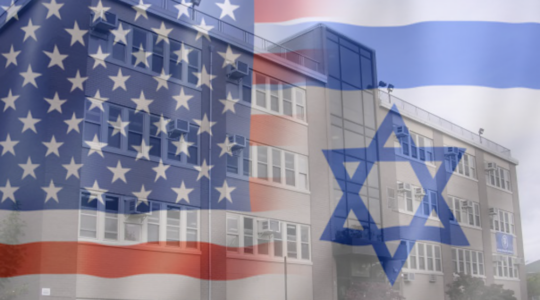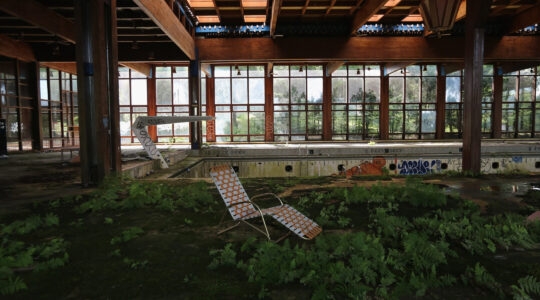The recent start of the busy season for Birthright Israel, the program that has brought hundreds of thousands of young Jews closer to the Jewish community by bringing them to Israel for 10 free days of tours and lectures, also marked the end of another cultural program that has attracted the same age group.
New York City’s Six Points Fellowship, which since 2006 has supported 30 young Jewish artists who “believe in the power of artists to transform Jewish life,” is closing down. UJA-Federation of New York, which has given some $1.7 million to the program established by the Foundation for Jewish Culture, is discontinuing its funding. The philanthropy said it is concentrating its resources on programs that emphasize Israel education and Jewish engagement.
With the close of the local Six Points Fellowship — a smaller branch in Los Angeles will operate until the end of 2013 — another possible connection between Jews in their 20s and 30s, and the wider Jewish community, is lost.
The end of the fellowship program — which funded, among other things, a 65-person artist retreat called “Asylum,” an “experimental rock opera” called “A Kaddish for Bernie Madoff,” and a neo-cantorial album called “Secret Melodies Revealed” — follows the closing or shrinking in recent years of the JDub Jewish record label, 92Y Tribeca, Heeb magazine and San Francisco’s Traveling Jewish Theater, all programs that that achieved success in attracting Jewish members of Generation Y.
For young Jews, who often feel alienated from older, established Jewish organizations, who often feel uncomfortable in synagogues, who meet on Facebook instead of at Jewish community centers, Jewish culture has proven to be a welcoming portal.
“Support of the arts is not a distraction from the values the next generation of philanthropy seeks to support, but central to them,” Joshua Ford, associate executive director of the Washington DCJCC, wrote recently in eJewish Philanthropy.
Jewish leaders who deal with the young generation of Russian-speaking Jews here recognize this; programs for that cohort have a decidedly cultural flavor. One example: the Lost & Found Project, a theatrical troupe that is an affiliate of the National Yiddish Theatre – Folksbiene. Its performances, focused around Jewish themes, draw large crowds of Russian-speaking Jews.
“The best way to engage with Russian Jews is through theater,” actress Anna Zicer, founder of the troupe, told Haaretz. “Religion, tradition simply isn’t a factor for Russians.”
Russian-speaking Jews, a growing presence in American Jewry, are representative of the direction in which young members of the community are headed. They’re not uninterested in Judaism, but are interested in different parts than their parents’ or grandparents’ generations.
The closing of the Six Points Fellowship closes one door through which many young Jews may have entered.
The New York Jewish Week brings you the stories behind the headlines, keeping you connected to Jewish life in New York. Help sustain the reporting you trust by donating today.




